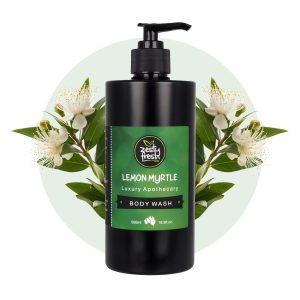The Pure Essence of Nature: Understanding Organic Essential Oils
In the world of wellness and natural health, essential oils have gained significant recognition for their therapeutic benefits. But not all essential oils are created equal. Organic essential oils stand out as the superior choice for those seeking purity, potency, and sustainability. In this blog, we’ll explore what makes organic essential oils special, their benefits, and how to incorporate them into your daily routine.
What Are Organic Essential Oils?
Organic essential oils are concentrated plant extracts derived from botanicals grown without synthetic pesticides, herbicides, or genetically modified organisms (GMOs). These oils are obtained through natural processes such as steam distillation or cold pressing, preserving the plant’s natural therapeutic properties.
To be certified organic, essential oils must meet stringent farming and production standards set by regulatory bodies such as the Australian Certified Organic (ACO) regulatory body. These standards ensure the oils are free from harmful chemicals and sustainably sourced.
The Benefits of Choosing Organic Essential Oils
- Purity and Potency
Organic essential oils are free from harmful chemical residues, making them safer for aromatherapy, skincare, and other applications. Their purity ensures that you receive the full therapeutic benefits without unwanted toxins. - Sustainability and Environmental Responsibility
Organic farming supports biodiversity, soil health, and ecological balance. By choosing organic essential oils, you contribute to environmentally friendly practices that reduce pollution and promote sustainability. - Better for Your Health
Synthetic pesticides and fertilisers can leave behind residues that may trigger allergies or sensitivities. Organic oils reduce the risk of exposure to these harmful substances, making them a better option for overall well-being. - Superior Aromatherapy Experience
Because they are produced under the most natural conditions, organic essential oils tend to have a richer and more authentic fragrance, enhancing their therapeutic effects in aromatherapy and relaxation practices.
How to Use Organic Essential Oils in Your Daily Life
- Aromatherapy: Add a few drops to a diffuser to purify the air, elevate mood, or promote relaxation. Scents like lemon myrtle are excellent choices for stress relief and respiratory support.
- Skincare: Dilute essential oils with a carrier oil (such as jojoba or sweet almond oil) and apply them to the skin.
- Massage Therapy: Blend with a carrier oil for a soothing massage that promotes relaxation and relieves muscle tension.
- Natural Cleaning: Use lemon myrtle in DIY cleaning sprays to eliminate bacteria and freshen up your home without harsh chemicals.
- Bathing Rituals: Add a few drops of essential oil to an Epsom salt bath for a spa-like experience that soothes both the body and mind.
Choosing High-Quality Organic Essential Oils
When selecting organic essential oils, consider the following:
- Certification: Look for official organic certification on the label.
- Packaging: Oils should be stored in dark glass bottles to protect them from light degradation.
- Extraction Method: Steam-distilled or cold-pressed oils retain the most therapeutic properties.
- Sourcing Transparency: Brands that provide information about the origin and cultivation methods of their oils are often more trustworthy.
Final Thoughts
Organic essential oils offer a holistic way to enhance wellness while supporting sustainable and eco-friendly practices. By choosing high-quality organic options, you ensure that your body, mind, and the environment benefit from the purest essence of nature. Whether used in aromatherapy, skincare, or home care, these potent plant extracts are a simple yet powerful addition to a healthy lifestyle.
Ready to experience the benefits of organic essential oils? Explore our range of premium, pharmacist-recommended blends to elevate your wellness journey naturally.




